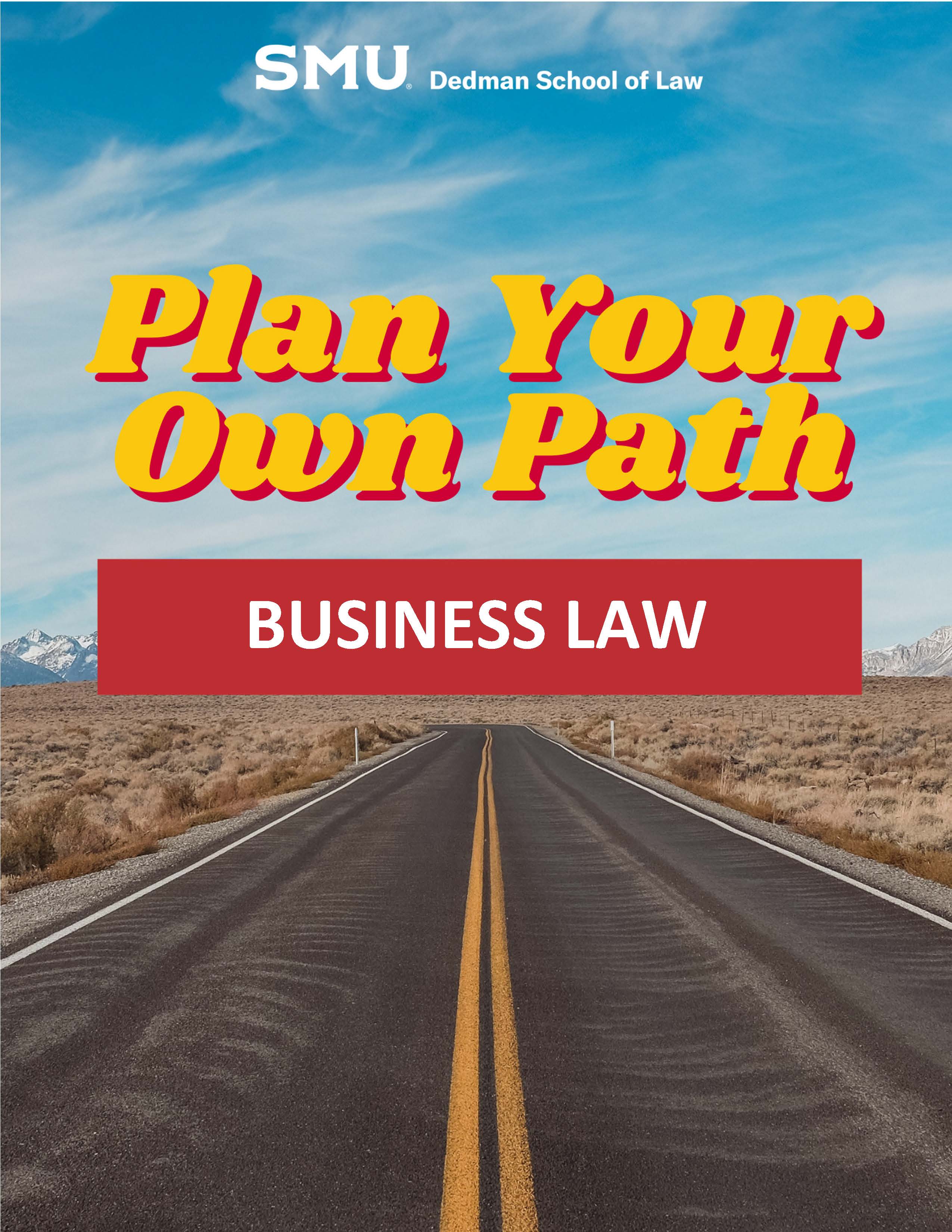Academic Advising
Juris Doctor -Degree Self-Audit
Please compare your unofficial transcript (accessed through my.SMU) against the appropriate checklist to ensure you are on track for graduation.
Students Admitted in Fall 2021 or Fall 2022
Students Admitted in Fall 2023 or Later
Experiential Learning Handout
All Juris Doctor students who must satisfy the “Experiential Learning” requirement. This means that they must complete one or more experiential courses totaling at least six credit hours. This handout explains how students may satisfy the EL requirement and answers frequently asked questions.
Registration Guide
This handout walks you through the process to register for courses on my.SMU
Public Service Graduation Requirement
All Juris Doctor students are required to complete 30 hours of law-related public service (pro bono legal work) in order to graduate. This guide answers questions about the requirement and covers the necessary steps to complete the hours.
 Plan Your Own Path
Plan Your Own Path
"Plan Your Own Path" offers a holistic approach to academic advising, allowing you to explore your interests, set your goals, and make informed decisions about your legal education. In addition to recommended courses, each of the following guides covers essential competencies clients and employers in each area seek.
- Antitrust Law
- Bankruptcy Law
- Business Law
- Civil Litigation
- Commercial and Consumer Law
- Criminal Law
- Energy, Environment and Natural Resources
- Estate Planning
- Family Law
- Health Law
- Immigration Law
- Intellectual Property
- International and Comparative Law
- Labor and Employment Law
- Real Estate Law
- Tax Law
The information within each section (listed in the above links) should help you select courses and other activities that will help you develop expertise in the relevant practice area. It will also suggest a logical sequence of courses, so that you can build from foundational courses that provide an overview of the area to those that require a high degree of knowledge and sophistication. Each section lists any clinical courses that are especially appropriate for practice in those areas. Note that students generally should not take all of the courses listed, as that could result in a kind of over-specialization that deprives you of the broad foundation described above.
The guides also suggest related courses that can provide information and skills that can enhance your practice. In addition, the guides identify externships (field experiences for law school credit), and public service opportunities (that satisfy your public service requirement for graduation) to enhance your skills and understanding. In addition to the pre-approved public service placements, students can seek approval of new placements that meet the program’s requirements.
The guides also identify opportunities to get involved with others who share your interests. When there are student organizations for those interested in a particular area, those are listed as well. Students can also network with attorneys who practice in their fields of interest by becoming involved with the relevant sections of the Dallas Bar Association and Tarrant County Bar Association. See both the Dallas Bar Association and the Tarrant County Bar Association for association and activities information.
Uniform Bar Examination
The Uniform Bar Examination (UBE) is administered twice a year (February and July) over the course of two days. This guide covers general information about the UBE and provides answers to frequently asked questions about the exam. Thishandout provides recommendations on which bar courses students may want to take.
Tips for Selecting a Course Concentration
Learn from our faculty about seven different course concentrations and what they entail.
